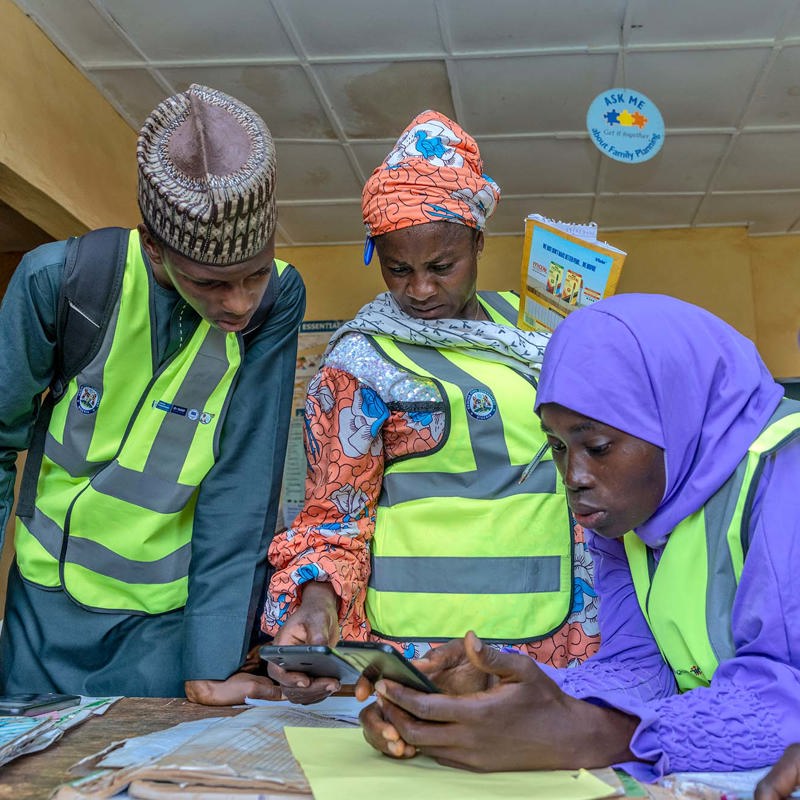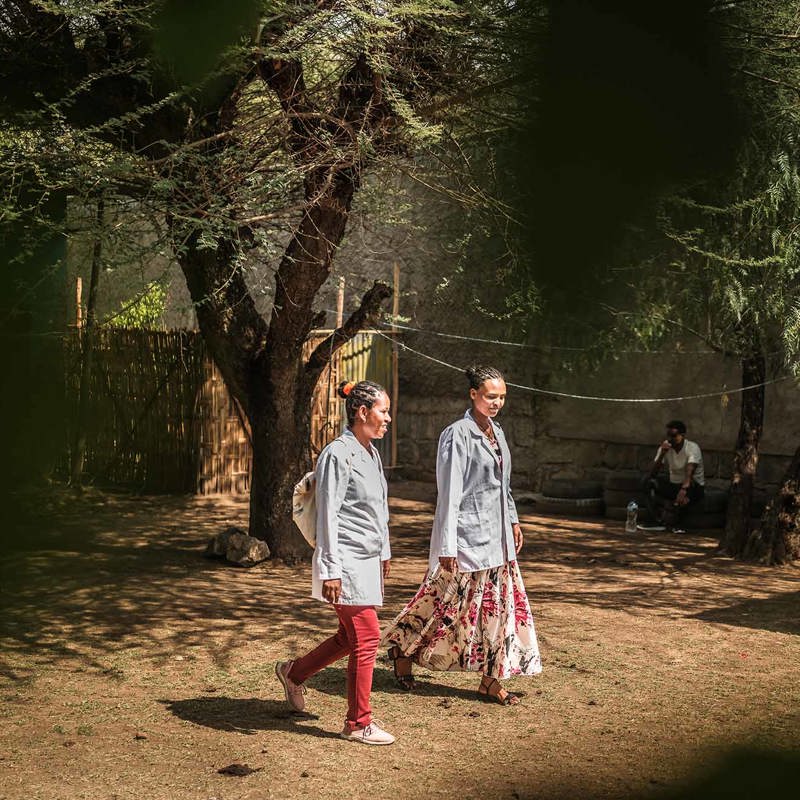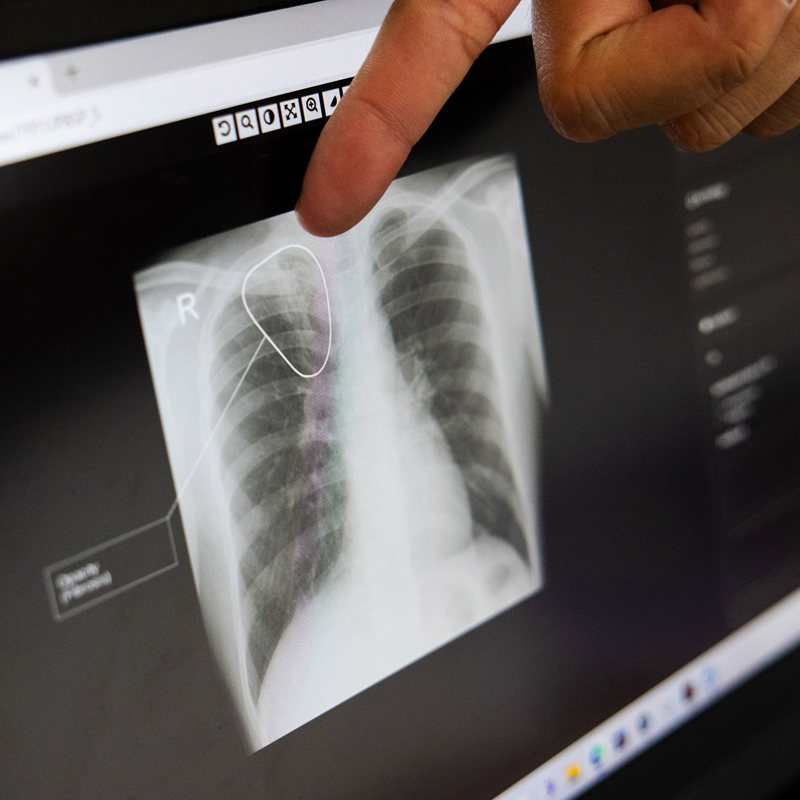The Challenge
Investments in digital health maximize the impact of every dollar invested to end AIDS, tuberculosis (TB) and malaria. These investments make entire health systems more robust and efficient by improving data use, clinical decisions, diagnostics, disease surveillance, information sharing, remote monitoring and health worker reach and performance.
The digital health tools and initiatives that the Global Fund supports – including digital tools for community health workers, digitizing health data, enhancing supply chains and enabling digital payments – are vital to maximize outcomes in the fight against HIV, TB and malaria and strengthen the health system as a whole.
In low‑ and middle‑income countries that must achieve health outcomes with limited workforce capacity and severely constrained budgets, the rapid advancements in digital and artificial intelligence (AI) enable reimagining health care delivery. Scaling AI to meet the needs of these countries requires a shared commitment to digital infrastructure foundations and thoughtful utilization of AI solutions driven by evidence, aligned with national priorities, and focused on equitable access to services.



